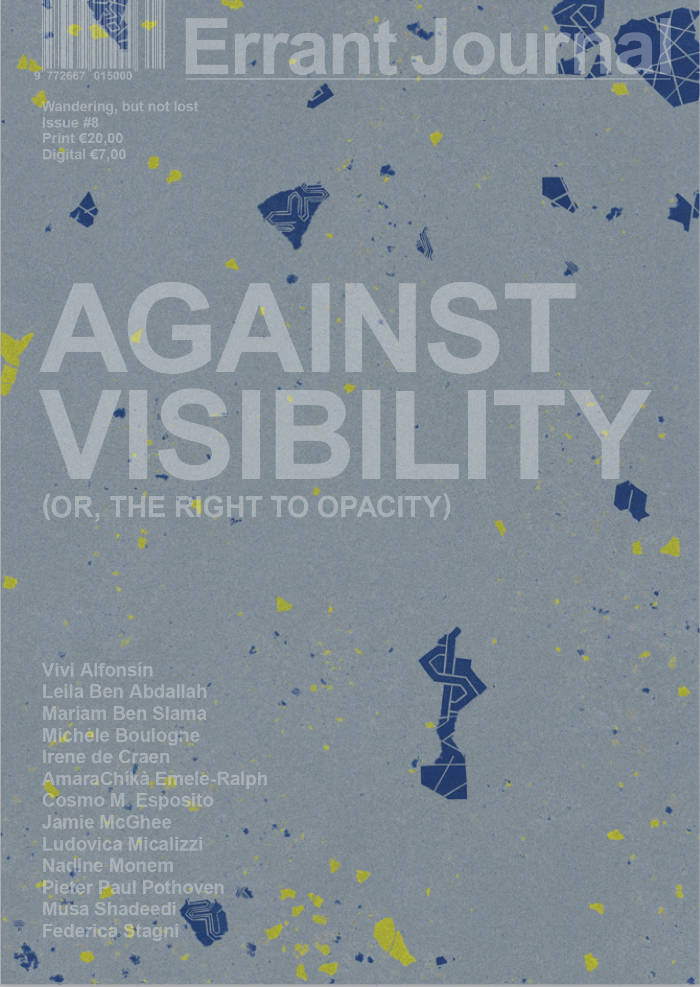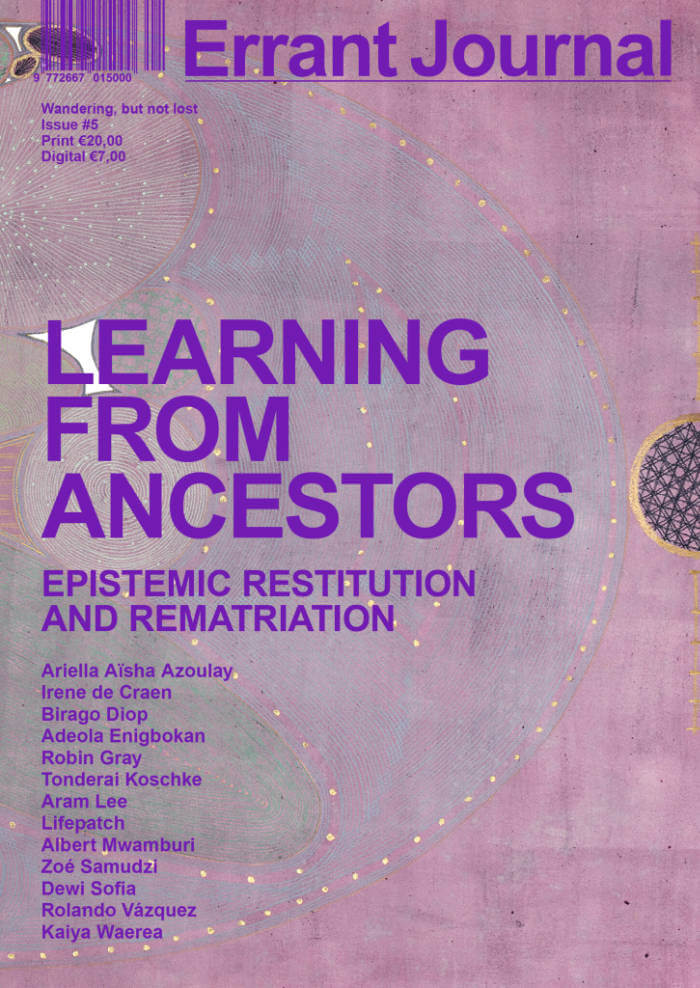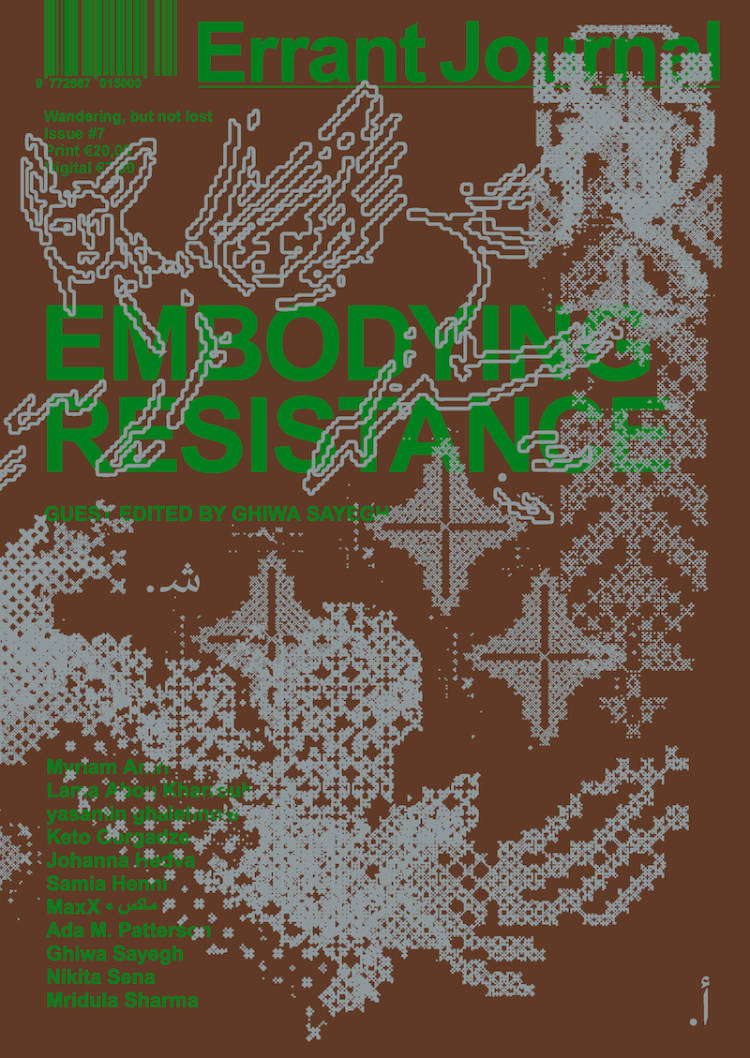
Issue #8 - Against Visibility (or, the Right to Opacity)
Irene de Craen ed.
The eighth issue of Errant Journal questions the ways in which hegemonic culture and discourse tends to prioritize the ideal of openness, access, transparency, and visibility. Delving into topics such as face coverings, ‘coming out’ in queer discourses, the use of opacity in transformative justice, and different strategies of (visual) resistance, ‘Against Visibility’ can be read as a proposition of refusal of the paradigm of visibility and access that permeates all areas of western thinking. At a moment in which representation and uncovering ‘lost’ histories are trending, Errant asks what is being erased in a world where everything must always be visible. When Édouard Glissant proclaimed the right to opacity, he sought not to be reduced or to be measured against an ideal scale in order to be understood and accepted. Expanding from this, Against Visibility looks into the ways in which unlearning imperialism also includes unlearning the ideal of visibility itself.
Contributors: Vivi Alfonsín, Leila Ben Abdallah, Mariam Ben Slama, Michèle Boulogne, Irene de Craen, AmaraChíkà Emele-Ralph, Cosmo M. Esposito, Jamie McGhee, Ludovica Micalizzi, Nadine Monem, Pieter Paul Pothoven, Musa Shadeedi, Federica Stagni







